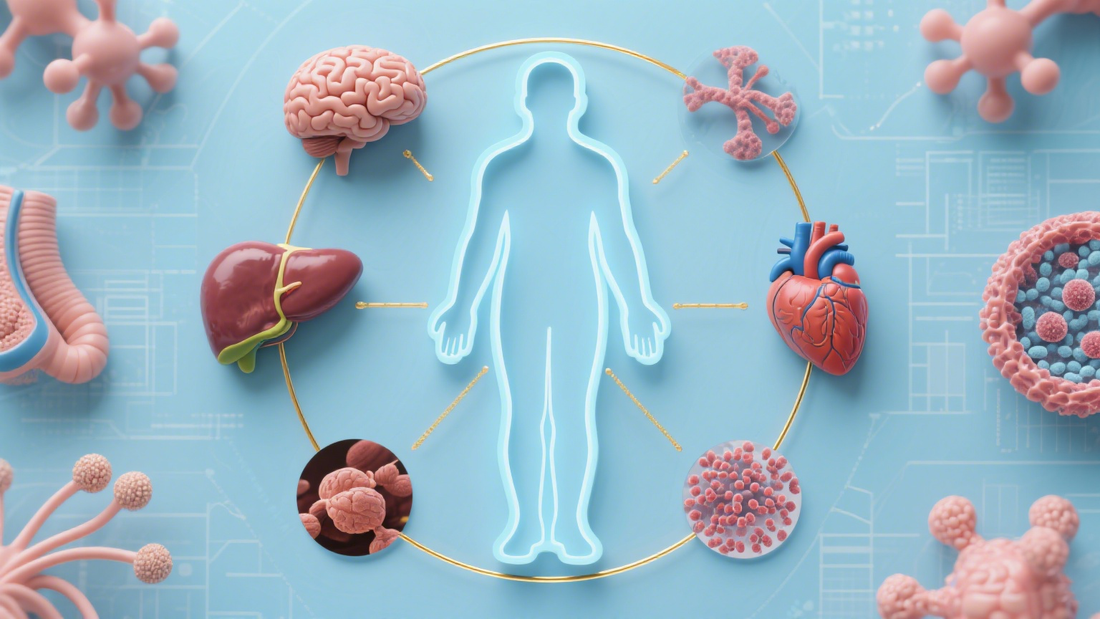
What Is Lecithin? The Unsung Nutrient Working Hard for Your Health
Share
If you’ve ever enjoyed a creamy salad dressing, a smooth chocolate bar, or a fluffy omelet, you’ve probably crossed paths with lecithin—even if you didn’t know it. This unassuming nutrient is a staple in both nature and our diets, but its benefits go far beyond making food taste good. Let’s break down what lecithin is, where to find it, and why it matters for your body.
First Things First: What Is Lecithin?
Lecithin is a type of phospholipid, a molecule that’s part fat, part phosphate, and packed with a key nutrient called choline. Think of it as a “cellular building block”—it’s a major component of cell membranes in every tissue in your body, from your skin to your brain. Its superpower? It’s a natural emulsifier, meaning it can mix fats and water (two substances that normally don’t play well together). That’s why it’s used in processed foods to keep textures smooth, but its real job is supporting your body’s daily functions.
Where to Find Lecithin in Your Diet
You don’t need fancy supplements to get lecithin—nature provides it abundantly in everyday foods:
- Egg yolks: A single large egg yolk contains about 1.3 grams of lecithin, making eggs one of the easiest sources.
- Soy products: Soybeans are a top commercial source—look for tofu, tempeh, soy milk, or edamame.
- Nuts and seeds: Sunflower seeds, almonds, and peanuts are all rich in lecithin (and make great snacks!).
- Organ meats: Liver (though an acquired taste) is a lecithin heavyweight.
- Whole grains: Smaller amounts hide in oats, quinoa, and brown rice, adding to your daily intake.
Why Lecithin Deserves a Spot in Your Diet
This nutrient is a quiet multitasker. Here’s how it supports your health:
-
Keeps Cells Strong
Since lecithin is a main ingredient in cell membranes, it helps cells stay flexible and intact. Healthy cell membranes mean better nutrient absorption, stronger immune function, and overall cellular efficiency—no small feat! -
Boosts Brain Power
Thanks to its choline content, lecithin is a brain ally. Choline helps make acetylcholine, a neurotransmitter critical for memory, focus, and even muscle control. Studies suggest consistent choline intake (from sources like lecithin) may support cognitive health, especially as we age. -
Helps Your Body Process Fats
Lecithin’s emulsifying magic works inside your body too. It breaks down fats so they can be transported, used for energy, or stored properly—instead of clumping up in ways that might harm your heart. While more research is needed, some studies link lecithin to healthier cholesterol levels. -
Supports Liver Health
Your liver works overtime to process fats, and lecithin may lighten its load. Research suggests it could reduce fat buildup in the liver, which is key for preventing conditions like non-alcoholic fatty liver disease (NAFLD).
How to Get Enough (Without Overdoing It)
Stick to whole foods—they’re the best source. A balanced diet with eggs, soy, nuts, and seeds will likely give you all the lecithin you need. If you’re considering supplements (often sold as granules or capsules), talk to a doctor first. High doses can cause digestive issues like bloating or diarrhea, and soy-based supplements may trigger allergies.
The Bottom Line
Lecithin might not make headlines like “superfoods,” but it’s a workhorse for your body. From cell health to brain function, it plays roles that keep you running smoothly. The best part? It’s easy to include in meals you already love. So next time you savor that egg scramble or handful of sunflower seeds, know you’re nourishing your body in more ways than one.
Have you tried incorporating lecithin-rich foods into your diet? Share your go-to recipes in the comments!



